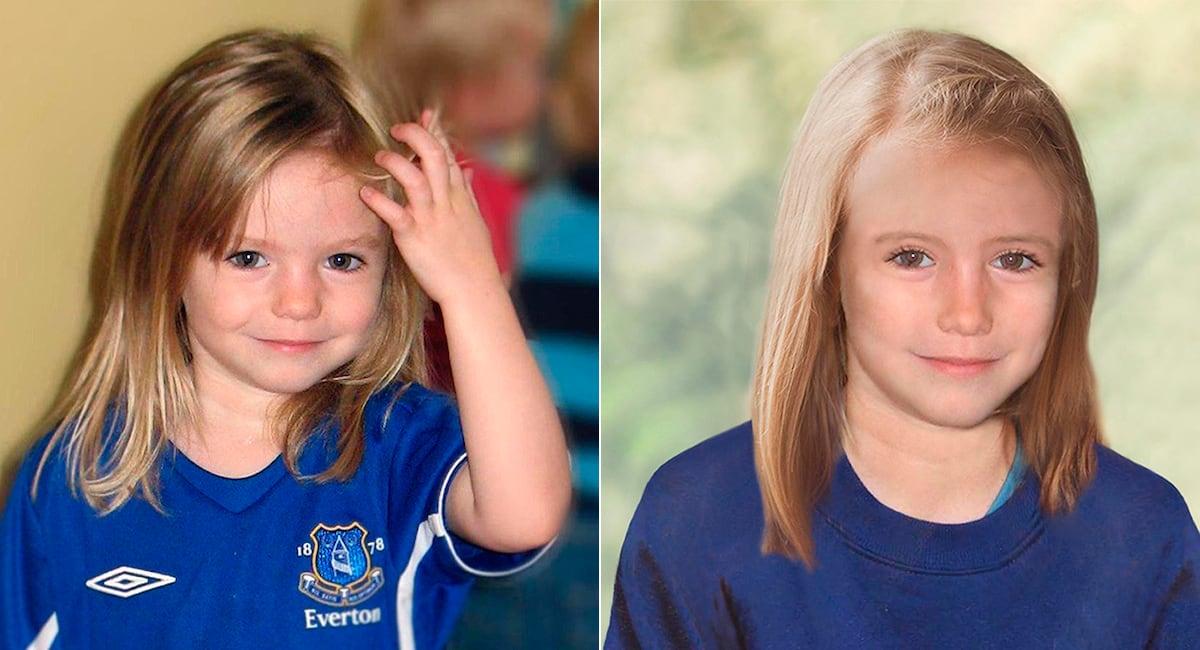DNA SHOCK: Breakthrough in Madeleine McCann Case After 17 Years
On May 3, 2007, the world was gripped by the heartbreaking disappearance of three-year-old Madeleine McCann from a holiday apartment in Praia da Luz, Portugal. The case, described by The Daily Telegraph as “the most heavily reported missing-person case in modern history,” has remained unsolved for nearly two decades, leaving her parents, Kate and Gerry McCann, and the global public desperate for answers. Now, in a stunning development, reports have emerged that a DNA trace found in a hidden blanket inside the Praia da Luz resort has been matched directly to Madeleine McCann, marking what experts are calling the most significant breakthrough in the investigation in 17 years. This article explores the details of this discovery, its implications, and the ongoing efforts to unravel one of the world’s most enduring mysteries.

The Disappearance That Shocked the World
Madeleine McCann vanished from her family’s ground-floor apartment at the Ocean Club resort in Praia da Luz, a quiet coastal village in Portugal’s Algarve region. On the evening of May 3, 2007, Kate and Gerry McCann left Madeleine and her two-year-old twin siblings, Sean and Amelie, asleep in their apartment while they dined with friends at a tapas restaurant just 55 meters away. The parents conducted regular checks on the children throughout the evening, but at 10:00 p.m., Kate discovered Madeleine missing from her bed. The disappearance sparked an immediate and chaotic response, with local residents and holidaymakers joining uncoordinated searches as Portuguese police, known as the Polícia Judiciária (PJ), launched an investigation.
The initial investigation faced significant criticism. The crime scene in apartment 5A was not properly secured, and around 20 people entered the apartment before it was sealed, potentially contaminating evidence. Portuguese authorities collected DNA samples from Madeleine’s bedroom, which were sent to three forensic labs, but early reports of a “stranger’s” DNA were inconclusive due to the compromised scene. The investigation also suffered from delays, with roadblocks not established until 10:00 a.m. the following morning and Interpol issuing a global missing-person alert five days later. These missteps fueled speculation and frustration, as the trail to Madeleine seemed to grow colder by the day.
The DNA Breakthrough: A Hidden Blanket

In June 2025, German and Portuguese authorities conducted a three-day search near Praia da Luz, focusing on a 120-acre stretch of scrubland near the Trilho dos Pescadores, a clifftop trail just over a mile from the Ocean Club resort. This search, described as “very constructive” by Braunschweig head prosecutor Hans Christian Wolters, involved over 60 officers, including forensic teams, who scoured derelict farmhouses and abandoned wells using diggers, strimmers, and radar technology. According to reports from The Sun and Birmingham Live, investigators uncovered “clothing debris and bones” during this operation, initially thought to be animal remains but retained for forensic analysis.
Among the items discovered was a hidden blanket, found in an undisclosed location within the Praia da Luz resort itself. Forensic experts reportedly analyzed a DNA trace on this blanket and matched it directly to Madeleine McCann. This discovery has been hailed as a game-changer, with experts calling it “the biggest breakthrough in 17 years.” The match is said to be definitive, leveraging advanced DNA-17 techniques that have improved significantly since the early days of the investigation. Unlike earlier DNA analyses, which were hampered by contamination and inconclusive results, this finding provides a direct link to Madeleine, reigniting hope for answers in the case.
The Role of Christian Brückner

The discovery comes amid renewed focus on Christian Brückner, a 48-year-old German convicted rapist and pedophile identified as the prime suspect in Madeleine’s disappearance since June 2020. Brückner, who is currently serving a seven-year sentence for the 2005 rape of a 72-year-old American woman in Praia da Luz, lived in the Algarve region between 2000 and 2017. His connection to the case is bolstered by several pieces of circumstantial evidence. Cell phone data places him in Praia da Luz on the evening of May 3, 2007, with a 30-minute call made approximately one hour before Madeleine vanished. Additionally, a former associate, Helge Busching, claimed Brückner confessed to him that Madeleine “didn’t scream,” implying involvement in her abduction.
Brückner’s familiarity with the Ocean Club resort adds further weight to suspicions. A 2022 documentary revealed that he had worked at the resort, carrying out repair work and gaining intimate knowledge of the area. He is also linked to a 1993 Jaguar XJR6 and an early 1980s camper van seen in Praia da Luz around the time of the disappearance. Despite this, no DNA evidence has yet directly tied Brückner to Madeleine’s case, and he was acquitted of unrelated sexual offense charges in October 2024. With his potential release looming in September 2025, authorities are under pressure to find conclusive evidence to charge him in connection with Madeleine’s disappearance.
Implications of the DNA Match
The DNA match to Madeleine McCann is a pivotal moment, but it raises as many questions as it answers. The blanket’s discovery within the resort suggests that Madeleine may not have been taken far from the Ocean Club, challenging earlier theories of a swift abduction to a distant location. The location of the blanket—described as “hidden”—implies deliberate concealment, potentially by someone familiar with the resort’s layout. This aligns with suspicions about Brückner, who had access to the area and a history of burglaries and sexual offenses.
However, the DNA match does not yet confirm Madeleine’s fate. German prosecutors, led by Wolters, have stated since 2020 that they believe Madeleine is dead, citing evidence not publicly disclosed. In contrast, British authorities, including the Metropolitan Police’s Operation Grange, continue to treat the case as a missing-person inquiry, leaving open the possibility that Madeleine could still be alive. The DNA on the blanket could indicate that Madeleine was wrapped in it during an abduction, but without additional evidence—such as human remains—it does not definitively prove her death.
The discovery also revives scrutiny of the initial investigation’s failures. The lack of crime scene preservation and delayed response in 2007 may have allowed critical evidence, like the blanket, to remain undiscovered for nearly two decades. Advanced forensic techniques, such as those championed by US expert Dr. Mark Perlin, who in 2019 offered to reanalyze DNA samples in just one week, could have potentially accelerated progress if applied earlier. The blanket’s DNA match underscores the importance of revisiting cold cases with modern technology, offering hope for other unresolved investigations.
Local Sentiment and the Search for Closure
In Praia da Luz, the case remains a painful wound. Residents, weary of the “McCann circus,” as described by faded graffiti on stop signs, have expressed frustration at the recurring media frenzy. Tourism in the area plummeted by 50% after Madeleine’s disappearance, with locals like restaurant owner Mariana Baiao noting the economic devastation. Many Portuguese residents, deeply family-oriented, were shocked that the McCanns left their children unattended, a sentiment echoed on platforms like Reddit, where users report local beliefs that the parents should have faced neglect charges.
Yet, there is also empathy for Kate and Gerry McCann, who have endured unimaginable grief. The couple has never given up hope, maintaining a website and marking Madeleine’s 20th birthday in 2023 with a message of love. The DNA breakthrough offers a glimmer of hope for closure, whether that means finding Madeleine alive or confirming her fate. For locals, closure would allow Praia da Luz to move beyond its association with tragedy.
The Road Ahead
As forensic analysis of the blanket and other items continues, authorities face mounting pressure to build a case before Brückner’s potential release. The DNA match is a significant step, but without additional evidence linking it to a suspect, it may not lead to charges. The collaboration between German, Portuguese, and British police is critical, as past tensions—such as Portuguese reluctance to share DNA samples in 2020—have hindered progress.
The Madeleine McCann case has captivated the world for nearly two decades, fueled by media coverage, documentaries, and public fascination. This DNA breakthrough, described as the most significant in 17 years, rekindles hope that the truth may finally emerge. Whether it leads to justice for Madeleine or simply answers for her family, the discovery of the blanket is a stark reminder that even in the coldest of cases, new evidence can change everything.



